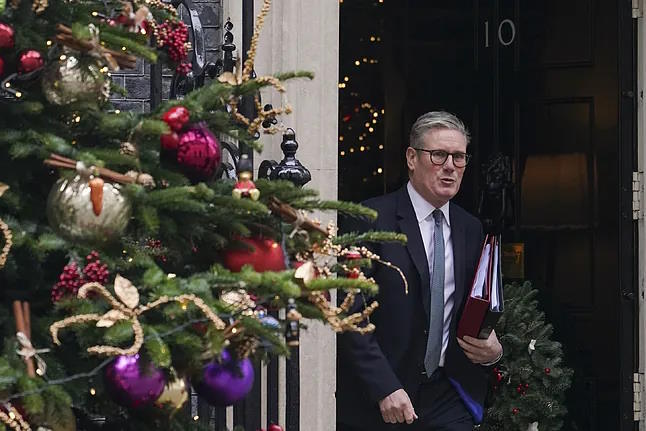Prime Minister Keir Starmer is trying to relaunch his government with the momentum of the so-called "plan for change". However, his speech in Buckinghamshire has been criticized by the leader of the Conservative Party as "an emergency plan" after the successive failures of his first five months in Downing Street.
From the dismissal of Partygate investigator Sue Gray as chief of staff to the recent resignation as Transport Secretary of Louise Haigh, from the scandal of 'freebies' or gifts from donors to the discontent of business owners and farmers after the first Labour budget, Starmer's landing has been marked by turbulence, and his popular approval rating of -38% is very similar to Rishi Sunak's in his farewell.
The advantage over the Conservative Party that allowed him to achieve a wide majority in the July 4 elections has completely vanished: polls show a virtual tie at 27% of popular support for the two major parties, with Reform UK by Nigel Farage gaining ground up to 19%.
"My Government was elected to bring about change, and this is a first step", declared Starmer in his Thursday speech, which generated anticipation comparable to the Labour manifesto during the elections. "People are tired of being promised the world and then being imposed short-term solutions that are like band-aids."
"British workers want economic stability, a safe country, secure borders, more money in their pockets, opportunities for their children, secure energy in their homes, and a public health system that is there when they need it," Starmer declared when setting his new Government objectives, starting with the deployment of 13,000 new neighborhood police officers and the promise of "a 'bobby' on every corner."
In a movie-like setting at Pinewood Studios (where the latest installments of 'Star Wars' were filmed), Starmer surrounded himself with his entire Government team, including his Deputy Prime Minister, Angela Rayner, who has invoked the spirit of Tony Blair and reiterated her promise to build 1.5 million homes in five years.
With the assistance of his chief of staff, Morgan McSweeney, Starmer has rewritten the electoral program with five new objectives: the highest economic growth in the G7, turning the UK into a "superpower of clean energy", halving violent crimes, "breaking down barriers to opportunity", and "building a National Health Service ready for the future".
"I know people may say: we have heard these 'missions' before, where is the rabbit out of the hat?," Starmer warned, acknowledging that his objectives will materialize once he is able to "fix the foundations and clean up the chaos" inherited from Conservative governments.
In a measured, almost laconic tone, Starmer repeated over and over that he will "put the country's interests ahead of the party's interests." The Labour leader also highlighted the differences with the five-point plans promised by Rishi Sunak and Boris Johnson, asserting that his proposal is "the most ambitious and credible in a generation."
Starmer avoided mentioning Brexit in his speech and skirted around the issue of immigration. He only addressed it after persistent questions from journalists at the end. "We have had 14 years of failed policies and a trick that cost us dearly, which was the 'Rwanda plan'," responded the Prime Minister, linking the issue with security. "Immigration control is one of the pillars of our Government, and that is what we are doing with an offensive against human trafficking gangs that has resulted in dozens of arrests this past week."
Starmer also defended his plan to "accelerate the development of clean energies until 2030." "It is a fundamental goal to ensure our energy security and prevent a tyrant like Putin from attacking the living standards of British workers again," he emphasized.
"The path of change is long and hard, with few short-term rewards," acknowledged the Prime Minister. "But mark my words well: this is our plan for change, and we will stick to it."
